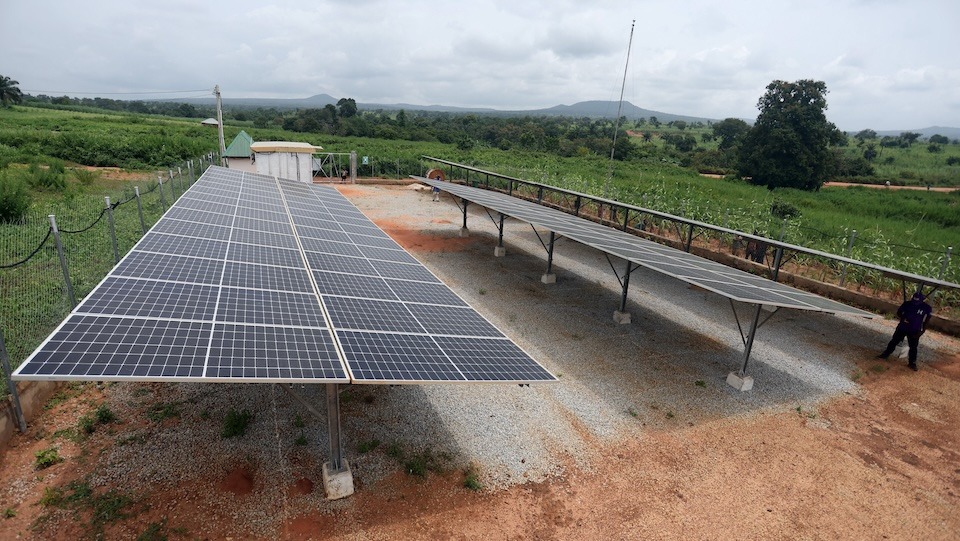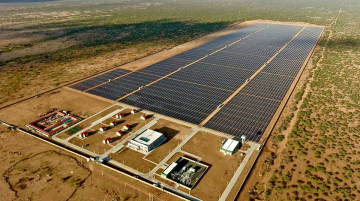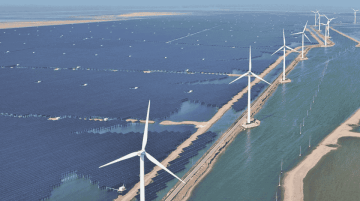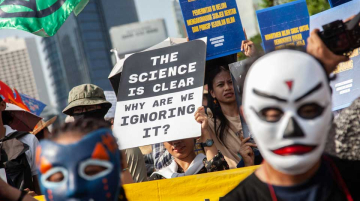
Nigeria recently floated, and then quickly walked back, a proposed ban on imported solar panels, most of which come from China. The about-face came just a month after the initial announcement, stirring familiar concerns about policy volatility in Nigeria and across Africa. But beneath the surface, the episode reveals a more complex narrative: one rooted in industrial ambition, geopolitical pressure, and the difficult tradeoffs of energy transition.
“Sometimes you make certain policy pronouncements not because that is what you want to do, but to test the ground,” says Tobi Oshodi, a lecturer at the Lagos State University. The announcement, he suggested, may have been more symbolic than substantive.
Between China and the West: A Strategic Tightrope
Countries like Nigeria are navigating a delicate balance as the U.S. and Europe intensify their competition with China, especially in the renewable energy sector. Instead of taking sides in this zero-sum game, the West African nation may be opting for what Oshodi describes as “collaborative competition.”
“In other words, Nigeria is signaling to international partners: we want to grow local capacity, but we’ll need your help to do it.” China remains central to Nigeria’s solar infrastructure despite imports from Germany and India. The country’s challenge, then, is to encourage local manufacturing while keeping critical relationships intact.
Nigeria could also be positioning itself to attract investment under initiatives like the European Union’s Global Gateway, which aims to support Africa’s green transition. But the fundamentals remain daunting. Local infrastructure is limited, and any sudden import ban would undercut existing supply chains, risking thousands of jobs tied to panel sales and installation.
Understanding the Solar Supply Chain
Building a domestic solar industry is not just expensive—it’s highly technical. Nicola Licata, a Shanghai-based environmental social governance (ESG) project manager, explains that solar panel production is energy-intensive, particularly in the upstream phases. This includes processing Metallurgical Grade Silicon (MGS), which is then refined into polysilicon and shaped into ingots and wafers—the building blocks of solar cells. These processes are heavily automated and clustered in Inner Mongolia, Ningxia, Shaanxi, Qinghai, Sichuan, and Yunnan- Chinese provinces that benefit from state energy subsidies and abundant water resources.
“The upstream factories are capital-driven—huge machines, highly automated, with large computer control rooms,” she noted. Even downstream stages, like cell and module assembly, now rely on minimal human labor. Some facilities operate as “dark factories”—lights off, machines running without humans.
While Nigeria is understandably eager to create local jobs, China’s ongoing automation push may be a cautionary tale. Jobs in manufacturing are shrinking, not growing. The work that remains is largely technical and on oversight.
The Solar Panels Production Process

On the Ground: Economic and Practical Realities
Isah Abdullah, a solar panel vendor and technician in Kano, worries that a poorly executed ban would worsen energy poverty. “Ninety-nine percent of the solar panels in Nigeria are imported,” he said. “Without viable local alternatives, a ban would slow rural electrification in Nigeria, raise costs, and delay adoption.”
At the same time, Abdullah questions the quality of many current imports, showing the disconnect between policy and reality. “You’ll see a panel rated at 600 or 620 watts, but after testing, it’s nowhere near that,” he said. Nonetheless, he concedes that China’s scale and pricing power remain unmatched. “Locally produced panels can’t compete in price or volume.”
He points to companies like Auxano Solar, which assemble imported cells locally, but notes this is a long way from full-scale manufacturing. “Importing cells versus importing panels—it’s nearly the same,” he added.
Abdullah also suspects that political and business interests were behind the short-lived ban. “We’ve seen this in cement and oil. It’s about controlling the market,” he said. If poorly executed, such a policy could stifle small businesses and widen inequality. But if rolled out gradually, with targeted investment, it could spur local industry and improve access to clean energy.
The Long Road Ahead
Nigeria’s electricity output—less than six gigawatts for more than 200 million people—is far below what is needed. Solar energy, with its decentralized potential, remains an attractive solution. But leaders must take a long-term view.China’s solar dominance was not built overnight. It took over two decades to scale its solar industry and Nigerian leaders must recognize that such transformation is a long-term process.










